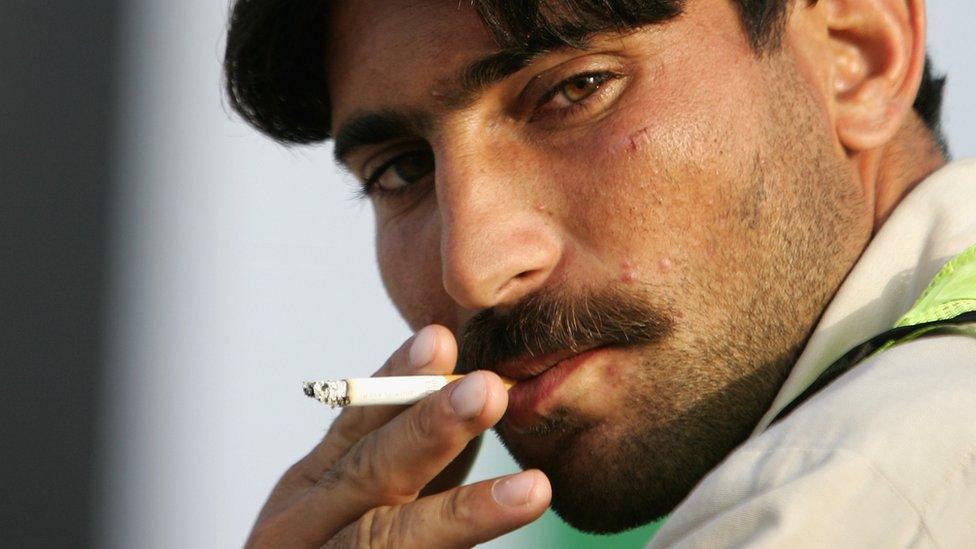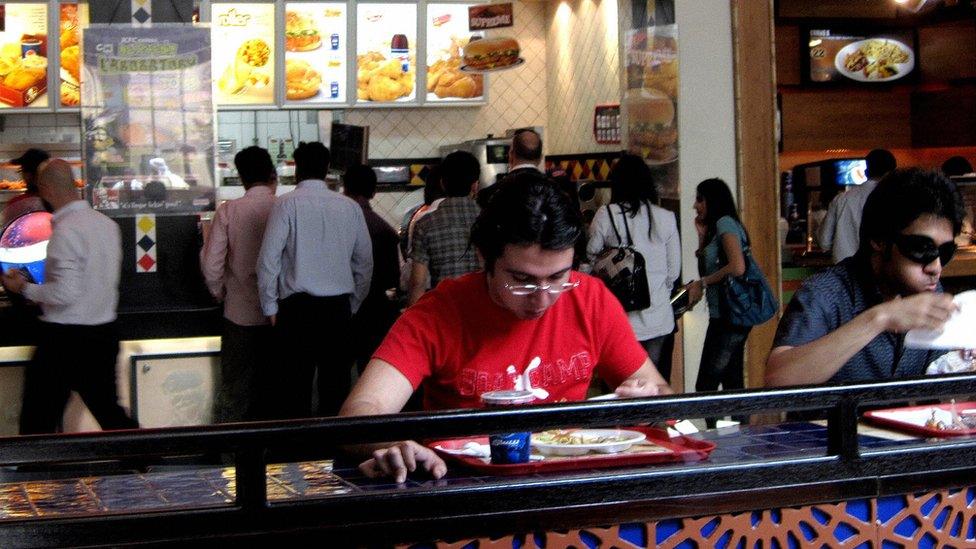Smokers fail to respond to UAE 'sin tax'
- Published

The UAE has doubled the price of smoking, but some say it only hits low-income smokers
Only one in four smokers in the United Arab Emirates have changed their habits after the government introduced a 100% "sin tax" last year, it's been reported.
According to a poll of 600 tobacco users carried out by Emirati newspaper The National, external, three quarters said that the doubling of prices in October 2017 had not led them to give up smoking.
In fact, the poll suggested that medwakh - a high-strength pipe tobacco - had actually increased in popularity.
Speaking to The National, respiratory expert Dr Saheer Sainalabdeen said that he was seeing more younger men in his surgery as a result of pipe smoking. "One hit of medwakh is the equivalent of smoking four or five cigarettes," he said, noting that some were smoking the equivalent of five packets of cigarettes daily.
The "sin tax", officially known as the Excise Tax, came into force on 1 October 2017, external, in an attempt to promote healthier living among Emiratis. Alongside the doubling of cigarette prices, a 50% tax rise was slapped on sugary carbonated drinks.
Switching brands
However, it appears that smokers are switching to cheaper brands, external rather than giving up.
While the best-known brands now sell for 22 dirhams ($6; £4.30) per pack in the UAE, tobacco enthusiasts can still buy cigarettes for as little as 3 dirhams ($0.80; £0.60), leading to calls for minimum pricing.
The tax has also tempted some shopkeepers to raise prices on other goods. The National reported, external in November that 24 retailers had been fined or received warnings for bumping up prices for customers already expecting to pay more.

Taxing smoking and fizzy drinks is not enough - some countries will also hit fast food
Fighting heart disease and diabetes
The "sin tax" idea took root in the region after Gulf Cooperation Council members agreed to take collective steps to tackle unhealthy lifestyles. The World Health Organisation says high taxation is one of the few effective measures to make people quit.
Saudi Arabia and Bahrain have introduced similar taxes, and Oman will start its own "sin tax" in June, with tobacco, alcohol and energy drinks to double in price, Muscat Daily reports, external.
Dr Jawad al-Lawati told the paper that taxes on fast food are also on the way in Oman. "What is going out of control is diabetes, cancer, cardiovascular diseases and drug abuse," he said.
Next story: Anger at Tonga girls' rugby 'ban'
Use #NewsfromElsewhere to stay up-to-date with our reports via Twitter, external.